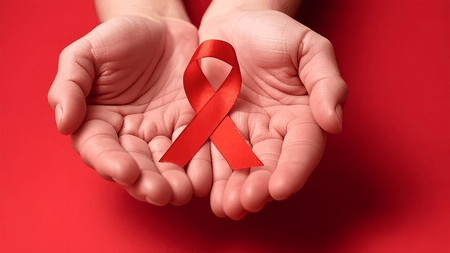Manila, Oct 24 (IANS) The World Health Organisation (WHO) in the Western Pacific region has raised an alarm about the “sharp increases” in Human Immunodeficiency Virus (HIV) cases in the Philippines, Fiji, and Papua New Guinea in recent years, “with implications for national and regional security.”
At Wednesday’s meeting in Fiji that brought together ministers of health from the 38 countries and areas in the Western Pacific Region, as well as civil society and development partners, the WHO and UNAIDS Asia-Pacific convened to confront the region’s HIV crisis amid growing national epidemics and seek solutions to accelerate progress on HIV prevention.
In Fiji, the meeting noted that new infections have increased tenfold over the past decade, including a massive spike in 2024. Injectable drug use has been identified as a major factor, with potential spillover of infections to other Pacific island countries.
From 2010 to 2024, they also noted that new infections rose roughly sixfold in the Philippines, with gay or bisexual men most affected.
This June, the government of Papua New Guinea declared HIV a national crisis in response to rising infections among women of reproductive age and children.
“Alongside gaps in prevention, responses in these countries, as in many parts of the region, have been undermined by late diagnosis and insufficient treatment coverage and access,” the WHO said in a statement published on its website.
“HIV is not ‘over’ as the situation across the Western Pacific clearly shows,” said Saia Ma’u Piukala, WHO Regional Director for the Western Pacific, stressing the need “for strategic and targeted approaches to prevention, testing, and treatment tailored to specific outbreaks and affected populations.”
“More than 40 years into the global HIV response, we know what we need to do,” he added. “Now is the time to act — urgently and together. Complacency is not an option. There is no time to waste,” Piukala said.
Eamonn Murphy, regional director of UNAIDS Asia-Pacific, Eastern Europe and Central Asia, echoed the urgent need for a more effective response to the crisis, Xinhua news agency reported.
“The investments we make in HIV services for the most marginalised populations ultimately also ensure the health of the wider community,” said Murphy, stressing the need for “a political will and shared responsibility to target investments toward the right interventions for the right people in the right locations.”
“Conversations are also needed about the right of all people to health, dignity, and a life free from stigma and discrimination,” he added.
The meeting lauded Australia, Cambodia, Malaysia, New Zealand, and Vietnam for taking urgent steps, including calling for public health emergencies and implementing new strategies to combat the spread.
They said these countries “have demonstrated that strong results are achieved when HIV programs combine evidence-based prevention strategies with universal access to antiretroviral treatment.”
The meeting concluded with a call for action to keep HIV high on national agendas through political will, expand harm reduction for people who inject drugs, ensure early diagnosis and treatment of HIV in primary health care, and finance the response under universal health coverage, tackle stigma and discrimination, which remain significant obstacles to testing, and access to essential services and treatment adherence.
–IANS
jk/rad
Disclaimer
The information contained in this website is for general information purposes only. The information is provided by BhaskarLive.in and while we endeavour to keep the information up to date and correct, we make no representations or warranties of any kind, express or implied, about the completeness, accuracy, reliability, suitability or availability with respect to the website or the information, products, services, or related graphics contained on the website for any purpose. Any reliance you place on such information is therefore strictly at your own risk.
In no event will we be liable for any loss or damage including without limitation, indirect or consequential loss or damage, or any loss or damage whatsoever arising from loss of data or profits arising out of, or in connection with, the use of this website.
Through this website you are able to link to other websites which are not under the control of BhaskarLive.in We have no control over the nature, content and availability of those sites. The inclusion of any links does not necessarily imply a recommendation or endorse the views expressed within them.
Every effort is made to keep the website up and running smoothly. However, BhaskarLive.in takes no responsibility for, and will not be liable for, the website being temporarily unavailable due to technical issues beyond our control.
For any legal details or query please visit original source link given with news or click on Go to Source.
Our translation service aims to offer the most accurate translation possible and we rarely experience any issues with news post. However, as the translation is carried out by third part tool there is a possibility for error to cause the occasional inaccuracy. We therefore require you to accept this disclaimer before confirming any translation news with us.
If you are not willing to accept this disclaimer then we recommend reading news post in its original language.

